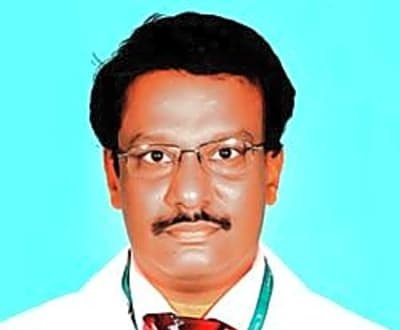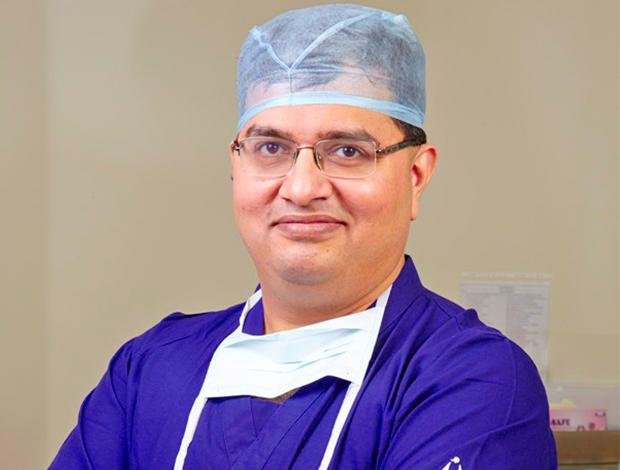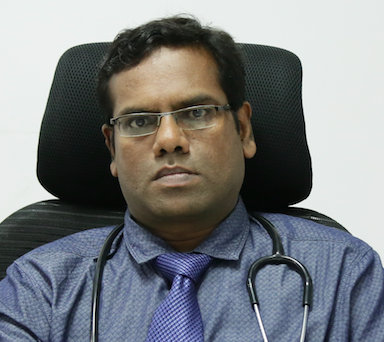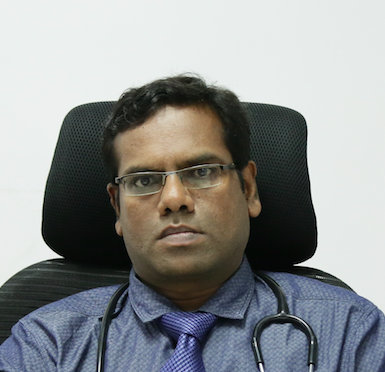Best Nephrology Hospitals

Apollo Hospitals, Greams Road
Chennai, IndiaMulti-Specialty Hospital
21/22 Greams Lane, Thousand Lights, Off Greams Road
8952 KM's away
Specialities
45Doctors
246Beds
560










Artemis Hospital
Gurgaon, IndiaMulti-Specialty Hospital
Near Unitech Cyber park, Sector 51
8745 KM's away
Specialities
40Doctors
99Beds
400










Fortis Memorial Research Institute
Gurgaon, IndiaMulti-Specialty Hospital
Sector 44, Gurugram
8746 KM's away
Specialities
47Doctors
76Beds
1000










Blk Hospital Delhi
Delhi, IndiaMulti-Specialty Hospital
Pusa Rd, Radha Soami Satsang, Rajendra Place, New Delhi, Delhi 110005
8759 KM's away
Specialities
43Doctors
148Beds
650










Gleneagles Global Health City
Chennai, IndiaMulti-Specialty Hospital
439, Cheran Nagar, Sholinganallur, Medavakkam
8946 KM's away
Specialities
40Doctors
42Beds
1000










Apollo Gleneagles Hospitals
Kolkata, IndiaMulti-Specialty Hospital
58, Canal Circular Road, On E.M. Bypass Road
9843 KM's away
Specialities
34Doctors
122Beds
510












Max Hospital Saket Delhi
Delhi, IndiaMulti-Specialty Hospital
1, 2, Press Enclave Marg, Saket Institutional Area, Saket, New Delhi, Delhi 110017
8761 KM's away
Specialities
44Doctors
118Beds
500+










Pavithra Hospital
Chennai, IndiaNo 7, Ethiraj Swamy Salai, Kodungaiyur, Landmark: Opp To Malaysia Mahal.
8952 KM's away
Specialities
4Doctors
2Beds
0


KVC Multispecialty hospital
Mysuru, IndiaMulti-Specialty Hospital
KVC Super Speciality Hospital Krishnavilas Road, - 570005
8557 KM's away
Specialities
45Doctors
1Beds
0

Sri Hospitals
Chennai, IndiaMulti-Specialty Hospital
32, Varadharaja Perumal Kovil Street,
8956 KM's away
Specialities
10Doctors
8Beds
40






Top 10 Nephrology Hospitals In India
| Hospital | Rating | Doctors | Location |
|---|---|---|---|
| Apollo Hospitals, Greams Road | 5 | 246246 | Greams Road, Chennai |
| Artemis Hospital | ---- | 9999 | Gurgaon Sector 51, Gurgaon |
| Fortis Memorial Research Institute | ---- | 7676 | Gurgaon Sector 44, Gurgaon |
| Blk Hospital Delhi | 3 | 148148 | Pusa Road, Delhi |
| Gleneagles Global Health City | ---- | 4242 | Perumbakkam, Chennai |
| Apollo Gleneagles Hospitals | ---- | 122122 | Salt Lake, Kolkata |
| Max Hospital Saket Delhi | ---- | 118118 | Saket, Delhi |
| Pavithra Hospital | ---- | 22 | Kodungaiyur, Chennai |
| KVC Multispecialty hospital | ---- | 11 | Devaraja Mohalla, Mysuru |
| Sri Hospitals | ---- | 88 | Tondiarpet, Chennai |
Questions & Answers on "Nephrology" (133)
Sir I have urea blood High 70 iam scared I don't now what to do
Female | 55
This condition can come from many issues, among them kidney function problems, dehydration, or high diets. Symptoms may be such as having tiredness, nausea, or changes in urination. For the treatment of this condition, it is essential to make a regular water intake, proper diet management, and regular health checkups. I advise that this can be done through making an appointment at your healthcare provider.
Answered on 5th Dec '24
Read answer
I am 48 years old. There is albumin (protein)+1 present in my kidneys. I am experiencing a fever as well as pain in my back. I have hypertension and diabetes as well.
Female | 48
According to what you have said, it may be a sign that there is an infection in one or both of the kidneys or even some sort of damage if the protein in your urine is accompanied by other symptoms like fever, backache, high blood pressure, and diabetes. Having protein present within urine isn’t normal at all, especially when taken together with these other signs. So you must see a nephrologist as soon as possible to have this checked out.
Answered on 11th June '24
Read answer
My mother has kidney cyst problem what should we do?
Female | 60
Kidney cysts are comparable to tiny fluid-filled balloons that develop on the kidneys. They are widespread, notably as we grow old. Individuals with kidney cysts display no symptoms and require no treatment. However, if the cysts are painful, infectious, or result in hypertension, your mother needs an experienced nephrologist. In cases where the cysts are problematic, a physician may propose them to be drained off sometimes even surgery might be necessary depending on certain conditions.
Answered on 4th June '24
Read answer
Kidney stone which tablets taking
Male | 36
Kidney stones may cause a distress signal, mostly that of severe, sharp back or side, nausea, and changes in urination. This is when some substances in your urine are forced together to create something solid. The easiest way to prevent this disease is to drink plenty of water, stay away from salt, and handle dietary calcium. Furthermore, by using over-the-counter painkillers, such as ibuprofen, you may be able to relieve temporary pain. despite all you should consult a nephrologist for the proper treatment.
Answered on 19th Dec '24
Read answer
Creatinine level increase
Male | 26
An increase in creatinine levels in the blood could indicate that your kidneys are not functioning properly. Symptoms are often not present at the beginning of the disease but as it progresses you can experience tiredness and suffer nausea. Common causes are dysfunction of kidneys, dehydration, and certain medicines. To reduce creatinine levels, it is necessary to drink a lot of water, consume a healthy diet, and take medications as prescribed by a nephrologist.
Answered on 10th Sept '24
Read answer
Kidney , am having a kidney problem And after visiting the doctor they write something like hyperechore Rt renal with slightly delayed calyces. More likely to patterns associated with nephritis
Male | 42
The findings indicate that there may be inflammation, which can result from various causes, including infections or autoimmune conditions. Symptoms might include pain, changes in urination, or swelling. It’s important to stay hydrated and manage any underlying health issues. I recommend closely following up with your nephrologist for a comprehensive evaluation and tailored treatment. They can provide specific guidance based on your situation.
Answered on 2nd Mar '25
Read answer
Nephrologist consultation
Male | 60
Usual circumstances that necessitate a visit to a nephrologist are issues like high blood pressure or chronic urinary tract infections, which may eventually attack the kidneys. Upon your visit to the nephrologist, the doctor will examine a few tests to see how your kidneys are functioning and then give the best treatment plan to you based on the findings.
Answered on 26th Nov '24
Read answer
I am 17 year old male my urine color is yellow can you tell me why since I was a child
Male | 17
Urine normally appears yellow due to urochrome pigment. Darker yellow often results from dehydration or certain foods consumed. Drinking more water typically lightens the color. Pain or burning during urination merits discussing with a urologist. Urochrome presence alone is usually innocuous and not a major concern. But combined with other symptoms, it may signal an underlying issue requiring medical evaluation. Overall, yellowish urine alone is generally harmless, as long as no other troubling signs accompany it.
Answered on 26th June '24
Read answer
Kidney problems dull pain on right side
Male | 18
Your right kidney area hurts slightly, and you're going pee often with blood. Possible causes: stones, infections, or inflamed kidneys. To know for sure, see a nephrologist. They'll check your urine and maybe get scans done.
Answered on 25th July '24
Read answer
Last month, the urine tube leading from my left kidney became clogged, which resulted in the insertion of a DJ stent to relieve the blockage. On November 23rd, I went to have the stent removed, only to discover that it had shifted out of position and was now stuck. As a result, the tube is clogged again. Could you please advise me on a solution?
Male | 26
The misplacement of a vessel may result in stenosis and in effect the existing noll of urine. Some of the other dangers are likely to be infection or simple kidney treatment.
Answered on 27th Nov '24
Read answer
hi I am thapelo In 2019 december I grew something like a brick the I 've been experiencing it untli now 2024 I went to hospital 2019 they gave me respidal till now nothing has removed and then in 2020 I suspect a kidney removed because it was on the left and then with the sex organs I could feel them I dnt know what to do my life is stuck need to get to university and finish off my studies need help.
Male | 24
Several things might have caused the growth you noticed like a tumor or cyst. So you need to see a nephrologist who can properly evaluate what’s going on with your body and give a treatment plan to help ease these symptoms.
Answered on 6th June '24
Read answer
Pain in urine and also in kidney and some thick white paste in urine
Female | 22
You may have pain when peeing, discomfort near your kidneys, and thick white discharge in your urine. These are signs of a urinary tract infection (UTI) or a kidney infection caused by bacteria entering the urinary tract. Drinking plenty of water, taking antibiotics prescribed by a doctor, and resting can help improve your condition. However, it is essential to visit a nephrologist for a proper diagnosis and the right treatment.
Answered on 29th July '24
Read answer
Pain in lower left side of stomach rest all parameters are normal E.g feel hungry normally, have normal bowel movement and normal urination.I was taking Cyclopam for the pain but now it's almost a month. Got my test report for Serum Creatinine level value is 0.74 mg/dlX
Male | 61
You need to get a USG of Abdomen done and a urine routine examination. For detailed information You need to consult Best Nephrologist in Thane.
Answered on 23rd May '24
Read answer
I am 16 years old and I have kidney pain for 3 days. What is the reason??
Male | 16 years old
Experiencing discomfort in your kidneys can arise from various factors, such as dehydration, a urinary tract infection, or even kidney stones. It’s important to watch for additional signs like changes in urination, fever, or persistent pain. Staying well-hydrated and maintaining a balanced diet can help. However, since you've been in pain for three days, I strongly encourage you to seek medical attention. A nephrologist can accurately diagnose the issue and provide the appropriate treatment to help you feel better.
Answered on 31st Mar '25
Read answer
My son suffering from dm 1 ,now ckd ,what may be solution
Male | 25
Diabetes type 1 and chronic kidney disease make a challenging combo. Kidneys can get damaged by diabetes over time. Look out for fatigue, swelling, and urinary troubles - these signal kidney problems. Controlling blood sugar levels and blood pressure helps protect the kidneys. Eating right and regular doctor visits matter a lot.
Answered on 23rd July '24
Read answer
Dr, I was diagnosed with IGA nephropathy 32 years ago. I am 64 years of age and my creatinine is 2.31 and has been hovering around that number. I have lost 124 lbs over the past year with the assistance of Zepbound. My kidneys have not improved and appear to be getting slightly worse. I run 3 miles a day and eat around 1200 calories a day never exceeding my sodium or potassium requirements. I do not have protein or blood in my urine. Please help. What is causing my creatinine to continue to rise? I am currently In Stage 4 kidney disease. Should I get an updated biopsy since my only biopsy was done in 1992. What can I do? Could the Zepbound be causing my kidneys to worsen? I drink 100 ounces of water daily.
Female | 64
It is concerning that your creatinine levels are rising despite your efforts. IGA nephropathy can progress slowly over time, and factors like age, diet, and medications may influence kidney function. Zepbound's impact on your kidneys should be evaluated by a specialist. I strongly advise you to consult a nephrologist for a thorough assessment and consider getting an updated biopsy to understand the current state of your kidney disease.
Answered on 8th July '24
Read answer
30 year old, creatine and urea level high, diarrheas, from past 4 days. Back ache.
Male | 30
you need to visit emergency department if your bp is more than 180/100 and having symptoms like headache for properly evaluation and management of your condition. This could be hypertensive emergency and needs immediate ecg and bp lowering medication to avoid possible complications.
Answered on 23rd May '24
Read answer
CHENNAI ANNA NAGAR HOME DIALYSIS REQUIRED
Male | 65
Home dialysis is an effective treatment for kidney issues, allowing for better management of symptoms such as fatigue, swelling, and changes in urination. This method involves using specialized equipment to filter waste from the blood at home, providing flexibility and comfort. Potential causes of kidney complications include diabetes, hypertension, and genetic factors. It's vital to consult with a nephrologist to assess your condition and determine the best approach for your needs. They can guide you through the process, ensuring a personalized plan that promotes your well-being.
Answered on 18th Apr '25
Read answer
I am 38 years old I have kiddny issue
Male | 38
Common symptoms include fatigue, swelling, changes in urine output, or back pain. These issues can arise from various causes such as dehydration, infections, or underlying health conditions. It's vital to maintain hydration, eat a balanced diet, and monitor any changes in your body. However, I encourage you to reach out to a healthcare professional for a complete evaluation and personalized advice. Early assessment can significantly impact your overall health and well-being.
Answered on 28th Jan '25
Read answer
Aoa, I m 43 year old male suffering from RENAL FAILURE my reports are as under . Creatinine is 19.4 Urea 218 Hb 8.4 Vomiting Abdominal pain
Male | 43
Your kidneys may not be working properly, leading to high levels of creatinine and urea in your blood. These substances should be filtered out by the kidneys but are staying in your bloodstream, causing symptoms like fatigue, low hemoglobin, vomiting, and abdominal pain. To start feeling better, you may need treatments like dialysis and medications to lower these levels. Renal failure is a serious condition, so it's important to follow a nephrologist's guidance for proper management.
Answered on 20th Aug '24
Read answer
Get Free Assistance!
Fill out this form and our health expert will get back to you.